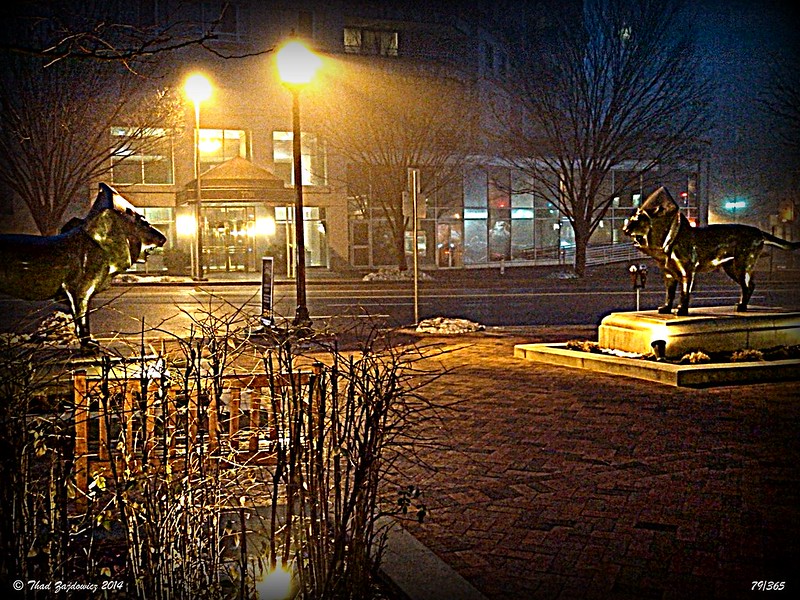Translated from the German by STEVEN CRAMER
Translator’s Note:
“Night Drive” is from Departures from Rilke (Arrowsmith Press, 2023), poems that repurpose, update, or upend lyrics from Rainer Maria Rilke’s New Poems (1907/08), often leaving Rilke’s premises almost altogether.
— Steven Cramer
Night Drive
That night we left the city and its streetlamps,
dim as dusk light behind their scowling masks—
a silence somehow out of key with the times—
we didn’t drive so much as levitate, and spun
orbits beyond the ponderous McMansions
in the suburbs, as welcoming as Castle Vlad,
or horse barns housing fraternities of studs.
While tail winds from the Upper Charles
lashed us through a midnight so insomniac
we didn’t know Earth from sky, cry after cry
rose from fallow, unweeded garden plots,
and rows of gravestones in Authors Ridge—
all that oblivion ditched, we sped up.
Then the city died. It even confessed
to having never lived; or if it did, it stayed
alive by going nowhere, like the manic
who twists inside his thought cycles
that never change nor stop rethinking,
dropping into his brain like cinder blocks
off a rooftop; and yet, instead of a smack,
there’s silence rising from the sidewalk.
A departure from Rilke
Nachtlichte Fahrt
Damals als wir mit den glatten Trabern
(schwarzen, aus dem OrlofF sehen Gestüt) — ,
während hinter hohen Kandelabern
Stadtnachtfronten lagen, angefröht
stumm und keiner Stunde mehr gemäß — ,
fuhren, nein: vergingen oder flogen
und um lastende Paläste bogen
in das Wehn der Newa-Quais,
hingerissen durch das wache Nachten,
das nicht Himmel und nicht Erde hat, —
als das Drängende von unbewachten
Gärten gärend aus dem Ljetnij-Ssad
aufstieg, während seine Steinfiguren
schwindend mit ohnmächtigen Konturen
hinter uns vergingen, wie wir fuhren — :
damals hörte diese Stadt
auf zu sein. Auf einmal gab sie zu,
daß sie niemals war, um nichts als Ruh
flehend; wie ein Irrer, dem das Wirrn
plötzlich sich entwirrt, das ihn verriet,
und der einen jahrelangen kranken
gar nicht zu verwandelnden Gedanken,
den er nie mehr denken muß: Granit —
aus dem leeren schwankenden Gehirn
fallen fflhlt, bis man ihn nicht mehr sieht.
Like his near-contemporary, W.B. Yeats (1865–1939), Rainer Maria Rilke (1875–1926) modernized his poetry from the otherworldly “twilit” style of his early poems to the sharp-edged imageries of his late work. His New Poems are widely praised as his first fully mature lyrics.
Steven Cramer’s seventh poetry collection is Departures from Rilke(Arrowsmith Press, 2023). His previous books include Listen (MadHat Press, 2020), Clangings (Sarabande Books, 2012); and Goodbye to the Orchard (Sarabande, 2004), a Sheila Motton Prize-winner and a Massachusetts Honor Book. He founded and currently teaches in Lesley University’s Low-Residency MFA Program in Creative Writing.



